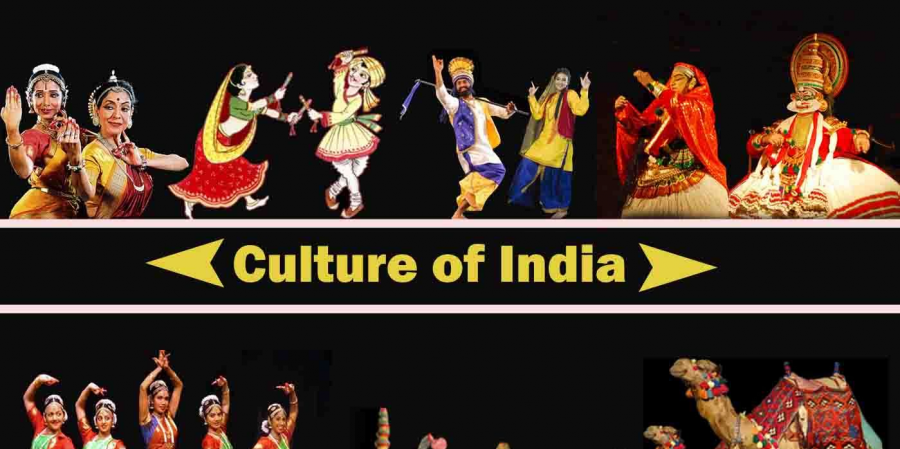

Indian traditional culture is rich and diverse, encompassing a wide range of customs, rituals, art forms, languages, and spiritual beliefs that have evolved over thousands of years. It is deeply rooted in religious and philosophical traditions such as Hinduism, Buddhism, Jainism, and Sikhism. Traditional Indian culture emphasizes family values, respect for elders, hospitality, and a strong sense of community. It is also known for its colorful festivals, intricate dance forms like Bharatanatyam and Kathak, classical music including Hindustani and Carnatic styles, and elaborate cuisine with regional variations. Traditional attire like sarees, dhotis, and kurta-pajamas are still worn on special occasions, reflecting the cultural heritage of the country.Religious Diversity: India is home to various religions such as Hinduism, Buddhism, Jainism, Sikhism, Islam, Christianity, and others, each with its own rituals, festivals, and practices.Festivals: India celebrates a plethora of colorful festivals throughout the year, including Diwali (Festival of Lights), Holi (Festival of Colors), Navratri (Nine Nights Festival), Eid, Christmas, and many more, each with unique customs and traditions.Art and Dance Forms: India boasts a rich heritage of classical dance forms like Bharatanatyam, Kathak, Odissi, Kuchipudi, and Kathakali, as well as traditional art forms like Madhubani, Warli, Tanjore painting, and miniature paintings.Music: Indian classical music, including Hindustani and Carnatic styles, has a deep spiritual and cultural significance. Instruments like the sitar, tabla, veena, and flute are integral to Indian classical music.Cuisine: Indian cuisine is diverse, with each region offering its own distinct flavors and specialties. Spices, herbs, and a variety of cooking techniques characterize Indian culinary traditions.Clothing: Traditional Indian attire varies across regions but commonly includes sarees for women and dhotis or kurta-pajamas for men, with variations like lehengas, sherwanis, and salwar-kameez depending on the occasion and region.Language and Literature: India is home to numerous languages and dialects, each with its own rich literary tradition. Works of poetry, epics, and scriptures in languages like Sanskrit, Tamil, Hindi, Bengali, and Urdu form an integral part of Indian culture.Spirituality and Philosophy: Indian culture places a strong emphasis on spirituality and philosophical inquiry, with ancient texts like the Vedas, Upanishads, Bhagavad Gita, and Ramayana influencing thought and belief systems.Family Values: Family is central to Indian culture, with strong bonds between generations and a collective approach to decision-making and support systems.The conclusion about Indian culture is that it's incredibly diverse, rich, and resilient. It encompasses various traditions, languages, religions, and cuisines. Despite modernization and globalization, Indian culture continues to thrive, blending ancient practices with contemporary influences. Its emphasis on family, spirituality, and community remains a cornerstone, contributing to its enduring appeal and global significance.
